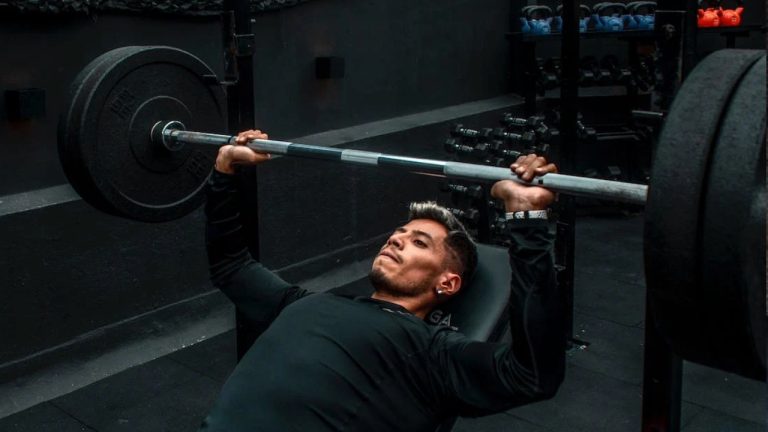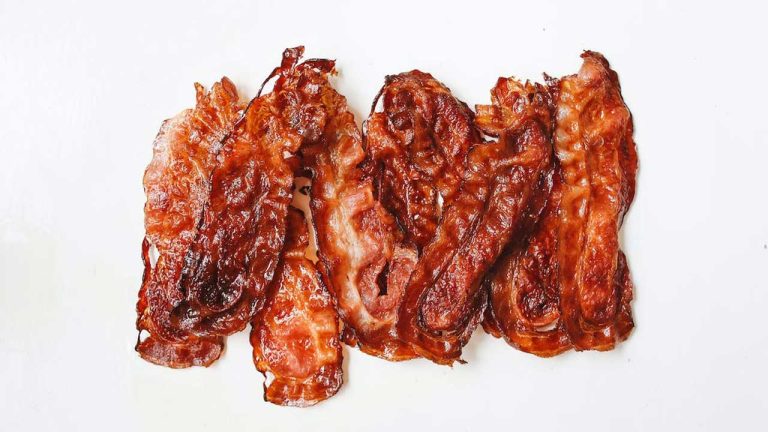Will Lifting Weights Make Me Bulky? Debunking the Myth
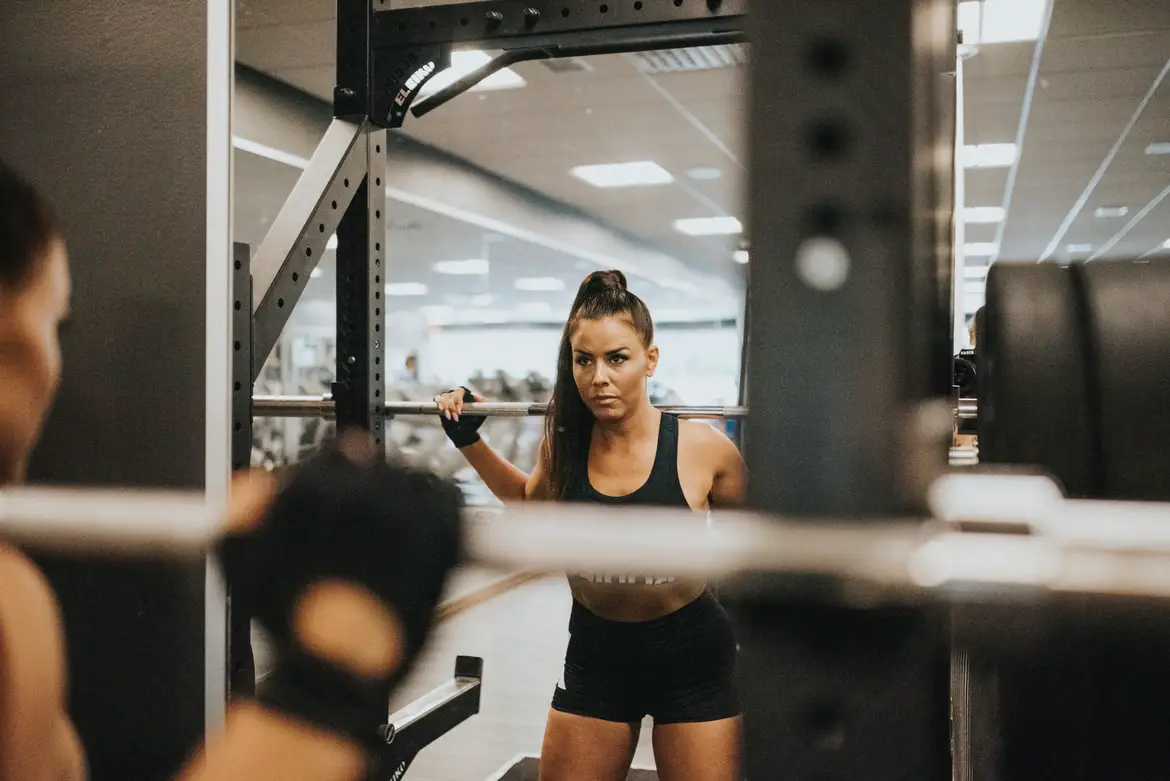
ListedFit is reader-supported. When you buy through links on our site, we may earn a small commission.
When it comes to fitness, weightlifting often poses the question: “Will lifting weights make me bulky?”
The answer varies depending on individual goals, body types, and the specific weightlifting program one follows. With different approaches to weight training, you can achieve either a lean and toned physique or significant muscle mass gains.
Understanding what defines “bulkiness” is crucial in unravelling this fitness myth.
Bulky muscles are commonly perceived as undesirable by some, especially women, who may fear that lifting weights will lead to an unwanted change in their body shape.
However, this misconception overlooks the numerous benefits of weightlifting, including improved strength, muscle endurance and overall fitness.
Key Takeaways
- Weightlifting can lead to different results based on individual goals and training methods
- Understanding the concept of “bulkiness” is essential in dispelling weightlifting myths
- Both men and women can benefit from incorporating weightlifting into their fitness routine without necessarily becoming bulky
In This Article…
Understanding the Concept of ‘Bulky’
When it comes to fitness and weight training, one question that often arises is whether lifting weights will make you bulky. To answer this question, it’s essential to understand what the term “bulky” entails. In general, a bulky physique is one that has a significant amount of muscle mass, which can affect your overall body composition and appearance.
As you begin your weightlifting journey, you might be concerned that developing a bulky physique could be undesirable.
Contrary to popular belief, simply incorporating weight training into your workout routine will not automatically result in a bulky appearance.
In fact, there are numerous factors that contribute to whether or not lifting weights will make you bulky, such as genetics, diet, and specific training techniques.
Everyone’s body is different, and individual responses to weight training can vary greatly. While some individuals might experience an increase in muscle size after lifting weights for an extended period, others may notice improved strength and muscle tone without significant growth in muscle mass.
In order to avoid developing a bulky physique, focus on maintaining a balanced diet that provides sufficient nutrients to support muscle growth without excessive caloric intake. Additionally, consider incorporating a variety of exercises and training techniques, such as high-intensity interval training, aerobic activities, and functional training. This diverse approach will help promote a leaner, more toned-looking body composition.
Dispelling the Myth: Weight Lifting for Women
One widespread misconception is that lifting weights will make women bulky. This simply isn’t true. In fact, incorporating weight lifting into your fitness routine can help you achieve a lean, toned appearance, as well as improve your overall strength.
Women generally have less testosterone than men, which means it’s harder for them to build large muscles. Instead, weight lifting can help you develop lean muscle mass and reduce body fat. As a result, your body will appear more sculpted and toned, not bulkier.
Don’t let the myth of becoming bulky keep you from experiencing the numerous benefits weight lifting can offer.
Incorporating strength training into your fitness routine allows you to work towards specific goals. Whether you’re aiming to improve your overall strength, increase lean muscle mass, or burn fat, lifting weights is an essential component. By focusing on a well-rounded strength training program, you can effectively target various muscle groups and reap the rewards.
Another advantage of lifting weights is the boost it provides to your metabolism. The more lean muscle mass you have, the higher your resting metabolic rate will be. This means that even when you’re not working out, your body will burn more calories to maintain its lean body mass. Pairing strength training with a calorie deficit diet can further accelerate fat loss and help you reach your desired body fat percentage.
To see the best results, it’s important to develop and consistently follow a tailored strength training routine. This should include a variety of exercises that target different muscle groups, ensuring a balanced and well-rounded approach. Additionally, focusing on proper form and gradually increasing weights over time will help prevent injury and keep you on track to reach your goals.
Weight Lifting and the Male Physique
When men engage in strength training or weight training, their body experiences an increase in testosterone levels.
Testosterone is an essential male hormone that plays a crucial role in muscle growth. This hormone not only helps you build lean muscle mass but also promotes fat loss and enhances your physical performance.
Men often find it easier to bulk up compared to women due to their naturally higher levels of testosterone and human growth hormone.

Scientifically, Women Can’t Get Bulky
Women should not be afraid to lift weights for fear of looking bulky because it is very difficult for women to gain a significant amount of muscle mass. This is due to several factors, including lower levels of testosterone, which is a hormone that plays a key role in muscle growth. Women also have less muscle mass to begin with, so it takes a lot of hard work and dedication to see significant gains in muscle size.
Additionally, lifting weights can have many benefits for women, including improving bone density, increasing strength and endurance, and boosting metabolism. Weight training can also help improve body composition, which refers to the ratio of fat mass to muscle mass. By increasing muscle mass and decreasing fat mass, weight training can help women achieve a lean and toned appearance.
It’s important to note that everyone’s body is different, and how much muscle a person gains from weight training will depend on a variety of factors, including genetics, diet, and training program. It’s also important to consult with a healthcare professional or a certified personal trainer before starting any new exercise program.
Overall, there is no reason for women to be afraid of lifting weights. In fact, incorporating weight training into a regular fitness routine can provide numerous physical and mental health benefits.
Weightlifting for Women FAQs
-
Can Weightlifting Make Women Bulky?
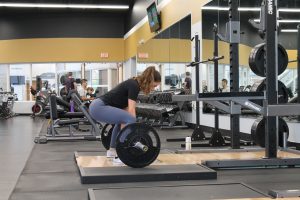
The short answer to the question of ‘will lifting weights make me bulky?‘ is no, it will not. Yes, women will gain some muscle when they lift weights, especially if they eat a lot of food and put in a lot of effort during the training. But the type of muscle will be lean and will give you curves in all the right places instead of an Arnold Schwarzenegger-type look.
The fact is that the female body doesn’t produce anywhere near enough testosterone in order for them to start looking bulky or ‘like a man’ if they were to start lifting weights in the gym.
What’s actually happening when you lift weights is that you’re encouraging your body to create lean muscle tissue through a process called hypertrophy.
This will help you to tone, strengthen and sculpt your body into shape, but will not actually increase the overall size of the muscles in question. Jumping on steroids, however, will do that.
-
Is It Impossible For Women To Look Bulky?

Not at all! Women will definitely build muscle when they lift weights, that’s why people who tend to not know much say you will get bulky if you lift weights (or will start to look like a man).
The type of muscle you will put on will NOT be the same as men.
It will not make you look masculine instead it will actually make you look more curvaceous and it could actually make a waist look smaller and boobs look bigger if that’s your goal.
-
Is Weightlifting Safe For Women?
The quick answer is, yes, of course, it is.
The long answer is, well it depends. If you’re just starting out, to avoid injury (which will make you stop exercising and could put you off altogether) it’s best to start slow. If you feel it would benefit you, talk to a personal trainer with an expert about what kind of weightlifting program would suit your goals or fitness level.The gist of it is that there are pros and cons to any form of exercise. If you haven’t done that kind of thing before, start slow, see what your body can take, and build up gradually.
If you’re already lifting weights then even better. Keep on doing whatever it is that’s working for you and just tweak where necessary.
-
What Will Happen If I Stop Lifting Weights?

If you put down the weights, will your muscles shrink or disappear? No. That’s not how your body works.
Lifting weights gives you muscle mass and definition. If you stop lifting weights, it doesn’t mean that all of your hard work goes away! Your muscle memory stays with you, even if you’re not working out. When you start lifting weights again, your muscles will quickly return to their previous size and shape.
I started lifting weights last summer but I hadn’t been back in the gym all winter. When I tried to lift at the beginning of spring break, it was so hard! No matter how long ago you stopped working out…your muscles don’t forget! By the end of my break, I was surprised at how quickly they came back.
My shirt was fitting a lot looser too!
-
Will Lifting Weights Help Me Lose Body Fat?

Yes, lifting weights will help you lose fat!
Lifting weights is such an effective way to burn calories and improve your metabolism. You can do this by performing resistance training with dumbbells or a barbell as well as using your own body weight for resistance through exercises like push-ups and planks (calisthenics).
What I love about calisthenics is that you can perform them just about anywhere at any time because all you really need is your body to get a solid workout in. Often if I’m abroad and I don’t have a gym nearby, I do calisthenics in my hotel room so maybe I’ll do some squats and press-ups on the hotel room floor before going to bed.
What is most key is that you lift weights with proper form so that you target the specific muscle groups and not injure yourself. If your form is off or if you use too much weight, then you won’t see results as fast and could even get injured.
Working out with weights can help you:
* Get more toned* Increase your bone density and prevent osteoporosis which is more common in women
* Burn more calories throughout the day while you’re not actually in the gym which is awesome, so that you don’t store fat as easily.
* Reduce risk of injury when doing activities like running or playing sports,
* Improve sleep quality by increasing production of growth hormones during exercise which helps you relax and get a better night’s rest and
* Improve your overall strength, energy levels and mood.
The speed at which you see results from weight training all depends on how much muscle you have to begin with, and also what your diet consists of. Getting a good fitness and diet plan is key.
-
How Often Should I Be Training And Why This Frequency Works Best?

In general, if you want to get stronger, the rule of thumb is to lift hard and lift heavy. However, it’s not as simple as that, there are a few more details to this statement that will make your training more effective.
You should be training at least 3 times per week, with a minimum of 2 days rest in between. If you are doing this correctly, you will see significant progress over time as your body adapts to the stimulus that you’re giving it.
However everyone doesn’t have to use the same workout frequency, there are variations to this depending on a number of factors.
How Often Should I Be Training?

You should be training at least 3 times per week, with a minimum of 2 days rest in between. If you are doing this correctly, you will see significant progress over time as your body adapts to the stimulus that you’re giving it.
However everyone doesn’t have to use the same workout frequency, there are variations to this depending on a number of factors.
What Training Frequency Should You Use?
The 2 most significant factors that determine your optimal training frequency would be intensity and volume. Volume is the total amount of work completed in a given session or workout, whereas intensity is how heavy you lift for a certain exercise.
- If you are new at weightlifting, perhaps just beginning to learn the technique for a given exercise, then you should aim for 3 days per week. You can split your training into one full body workout or 3 separate workouts during the week.
- If you are further along in your weightlifting journey and perhaps even compete regularly at a specific lift, than it may be beneficial to use hypertrophy (muscle building) workouts. This would be using weights that are heavy, but not to the extent where it disrupts technique. Hypertrophy workouts are programmed to use relatively heavy weights but also specific rep ranges. Rest periods are slightly shorter to keep the heart rate elevated, making this an anaerobic workout.
Conclusion – Will Lifting Weights Make Me Bulky?
The short answer is no, lifting weights won’t make you bulky. The key to this is using a progressive overload with an appropriate training frequency. It is a myth that just by lifting weights a girl will bulk up, it takes a lot of effort and dedication to see results from your workouts.
If you want to maintain light, lean muscles whilst losing body fat, then a good place to start would be interval training. Interval training is a mixture of cardio and strength training, for example, sprinting or stair running combined with light resistance exercises.
This type of workout will improve fitness levels while keeping lean muscle mass by alternating between anaerobic and aerobic phases during the workout. Although it is recommended that you do interval training in addition to weightlifting, it is not necessary.
Good luck on your journey – Happy lifting!
Author
-
I’m a mother, yoga instructor, runner, and blogger. Originally from South Africa, I’ve been a yoga instructor for over ten years.
I share my time between raising a very boisterous toddler (the love of my life) and teaching small yoga classes, but more importantly, loving every second of it!
Latest entries
 FashionMay 26, 2023Does Lululemon Run Big or Small? A Quick Sizing Guide
FashionMay 26, 2023Does Lululemon Run Big or Small? A Quick Sizing Guide FitnessMarch 9, 2023Can Pickles Help You Lose Weight?
FitnessMarch 9, 2023Can Pickles Help You Lose Weight?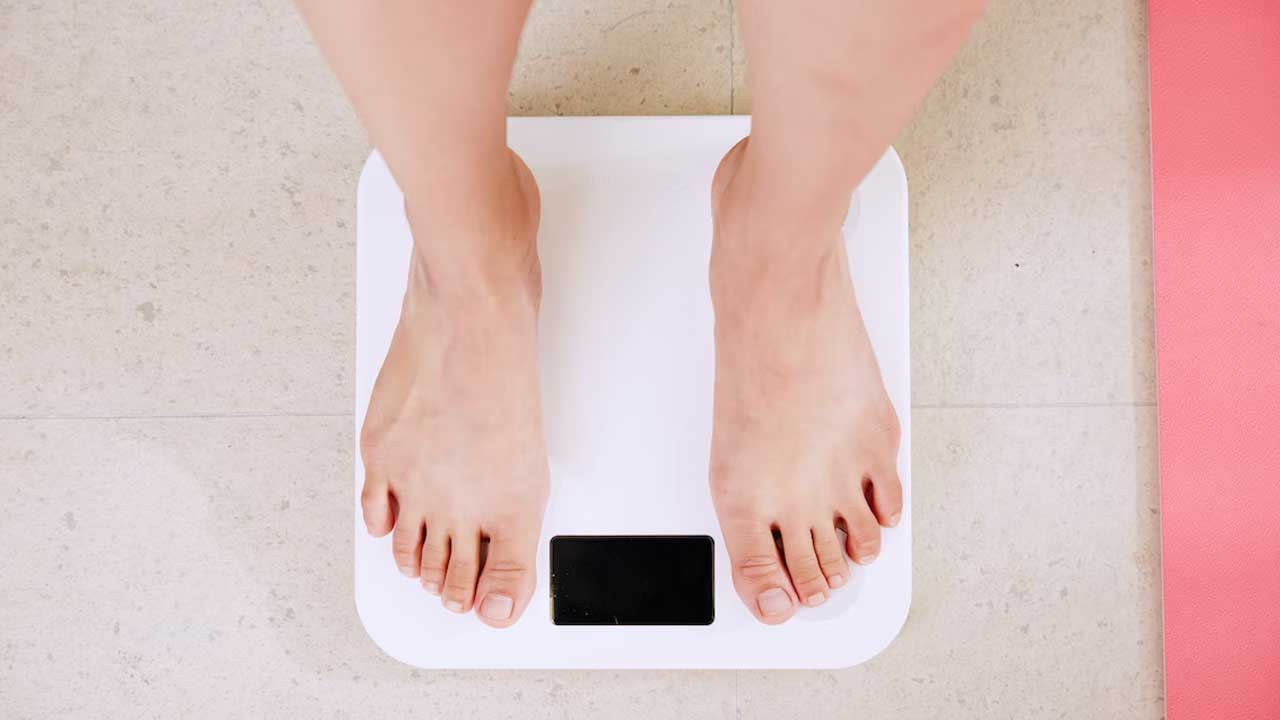 FitnessDecember 8, 2022Why Am I Not Losing Weight When I Exercise?
FitnessDecember 8, 2022Why Am I Not Losing Weight When I Exercise? FitnessNovember 25, 2022Tai Chi for Exercise- The Benefits of An Ancient Exercise
FitnessNovember 25, 2022Tai Chi for Exercise- The Benefits of An Ancient Exercise
Affiliates:
This post may contain affiliate links that at no additional cost to you, the site may earn a small commission. We only recommend products we would use ourselves and all opinions expressed on this site are our own.
General Advice:
The information provided in this article is for general informational purposes only. It is not intended as a substitute for professional advice. Always consult with a qualified healthcare professional before starting any new diet, exercise program, or making changes to your health routine.
Accuracy Advice:
While we strive to provide up-to-date and accurate information, the content in this article may not reflect the most current research or medical guidelines. We encourage readers to do further research and consult with professionals for more personalized advice.
Our Recommendations:
The products and services mentioned in any of our articles are recommended based on our independent research and personal experience. We are not sponsored by any company. We aim to suggest products and services we believe are of high quality and could be beneficial to our readers.



